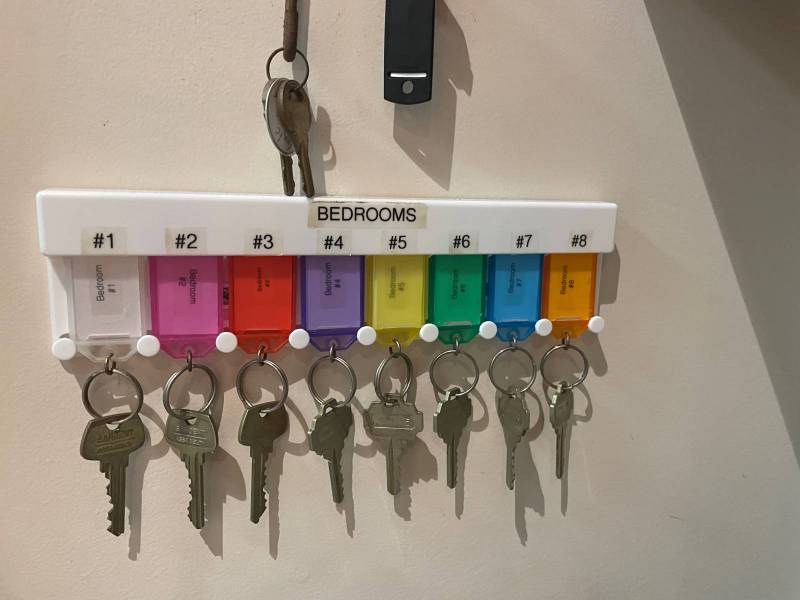It has been almost 6 months since the package of bills proposed to regulate hosted short term vacation (Transient Accommodation) rentals on Hawaiʻi Island went to the planning commissions for review. The County Council has heard the bills several times and adopted multiple amendments. As the three bills near passage, here is another update on the future of hosted vacation rentals on the Big Island.

A Package of Three Bills Regarding Hosted Vacation Rentals – Summary of Bills 121, 122 and 123
Bill 121 is the primary bill, establishing a framework for regulation of Transient Accommodations Rentals (short-term vacation rentals where the host is present on site). Note that the use of the term “Transient Accommodations Rentals” rather than the term “short-term vacation rentals,” which was used when unhosted rental regulation was introduced, is to conform better to Hawaiʻi State statutes, which require owners to collect and pay Transient Accommodations Tax (TAT) on such rental income. You might be familiar with TAT as it is also a big add-on to your hotel bill.
The current bill has changed substantially since the earliest draft that came out almost two years ago. Some of those were changes recommended by the Countyʻs legal department. Most were in response to feedback from owners of hosted vacation rentals. In general, the council members have tried to make it easier for resident homeowners who want to offer short term rental accommodations as a supplement to their income to qualify to do so legally under the proposed regulations, especially in the future. Last month the changes approved by County Council were:
- Removed the requirement to submit a floor plan.
- Removed the need for construction code compliance documents.
- Established a Visitor Destination Area (VDA) framework, which creates a process to recommend a community for this designation. Communities such as Volcano Village and Kona Vistas already have high concentrations of TARs. Setting them as a VDA would make TARs a conforming use. One important distinction of a VDA is that beginning Jan. 1, 2025, only individuals whose primary residence is Hawai‘i County can operate an unhosted TAR.
Bill 122 eliminates the section of the Zoning Code describing the existing regulatory process to be licensed as a Bed and Breakfast. Otherwise, after the passage of some version of Bill 121, owners would have a choice between two conflicting processes for creating a legal hosted vacation rental.
The biggest changes in the latest round been with respect to the third bill. Bill 123 refers to what have been called ʻohana dwellings, a term defined in state statute and implemented at the county level in 1996 to provide for building a second dwelling on a residential property for extended family. Those dwellings are typically referred to across the country as “Additional Dwelling Units” or ADUs, and with these amendments the Hawaiʻi County Code would follow this terminology.
In previous version of the bill, ADUs were restricted to long term rentals. The most recent amendments allow up to three ADUs to be built on a lot (if possible with other planning and building code provisions being followed), and for one ADU to be used as a vacation rental. The amendments also allow an ADU to be as large as 1,200 sq ft on a lot of any size.
What is the Risk of More Restrictions to Short Term Vacation Rentals in the Future?

As I often have to remind readers, my crystal ball has proven to be permanently broken – you can look back over 15 years of blog posts to see that! The trend, however, is clear – across Hawaiʻi and in other highly touristed destinations. Full time residents, especially those whose families have been in a place for generations, feel the pendulum swung too far in the direction of unregulated vacation rentals in residential neighborhoods.
The best advice is to make sure the property you are buying has zoning that supports transient rentals (in Hawaiʻi County, that would be a “resort”) zoning. As mentioned above, there is also some inclination to allow these rentals to continue in areas where there are high concentrations of TARs and few alternatives (like Volcano Village, close to Hawaiʻi Volcanoes National Park). Properties licensed for unhosted or hosted vacation rentals that have non-conforming use certificates will be more vulnerable. The important thing to remember is that these permits lapse unless renewed and continuing in use.
Another suggestion is to review the Hawaiʻi County General Plan 2045 for clues. The proposed final version is out for public comment. It will go to the planning commissions and County Council once finalized, so we probably have another year of tweaking, but the plan is substantially set.




Leave your opinion here. Please be nice. Your Email address will be kept private, this form is secure and we never spam you.